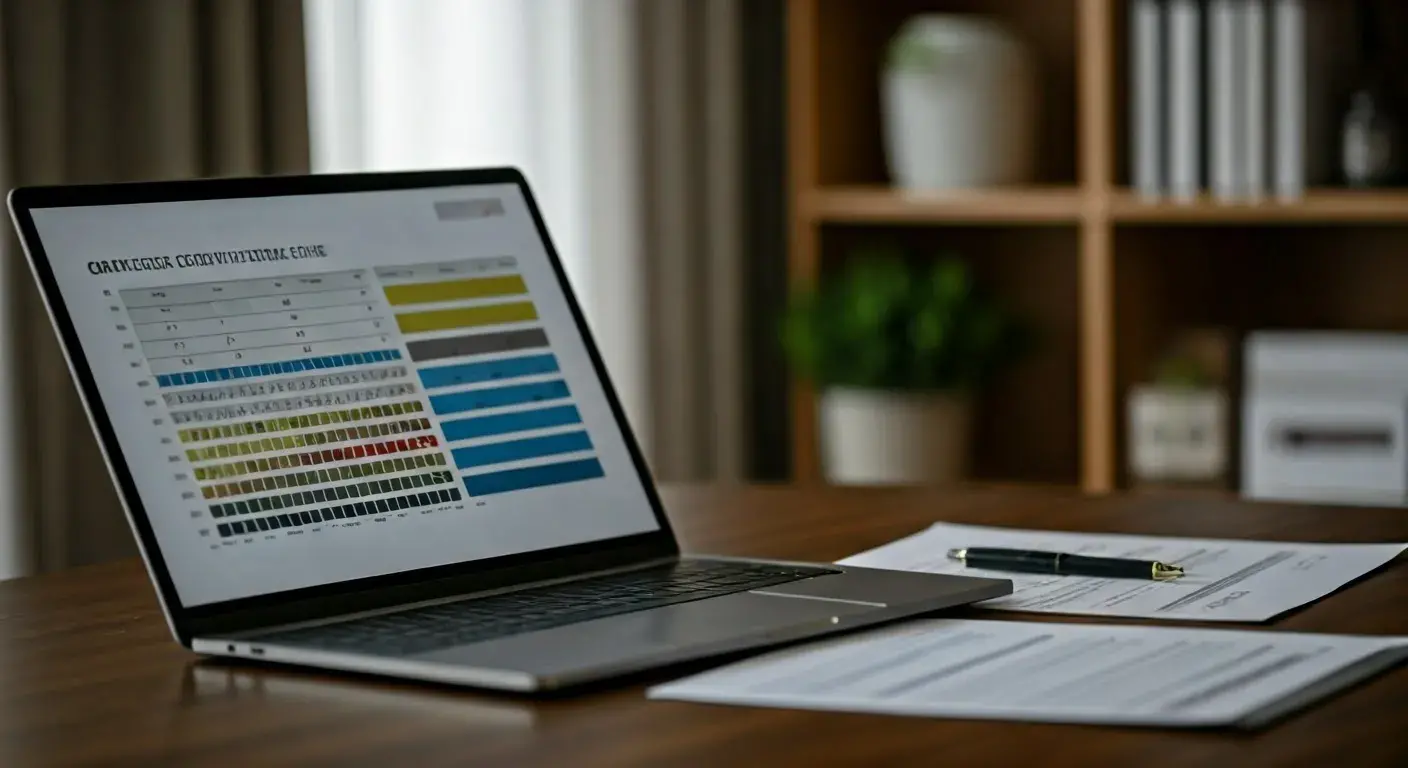-
Posted on: 26 Jul 2024

-
Introduction to Credit Monitoring Credit monitoring services provide credit report analysis and notify you of changes that are indicative of fraud or identity theft. Notice of new accounts that have been opened, inquiries made or large changes in scores provides an opportunity to reduce negative impacts or rectify mistakes.
How Credit Monitoring Works Credit monitoring services obtain your credit report from one or all three credit reporting agencies which include Experian, TransUnion, and Equifax. These services monitor your reports frequently, either daily, weekly, or monthly depending on the company. The service alerts you of any change in your credit data, including the addition of a new account, a credit inquiry, a late payment, an increase in the level of credit card usage, or a change in the credit score.
A notification often arrives through an email or a message on a mobile device. Certain services also offer the feature of opening your complete credit report, where you can see the activities that are done on all three reports at once. Some may also have the support of mobile apps to enable you to manage your credit information in one hand.
The most elementary credit monitoring often only requires you to look for new accounts and inquiries, which, if found would suggest that somebody has gained or tried to gain access to your information. Better monitoring services will ensure that your accounts are closely monitored for changes, payment delinquencies, credit score changes, and the seemingly rising utilization rates that accompany them. Some can even track records that are open to the public such as court records utility records or changes of address in the hope of detecting fraud.
Credit monitoring services allow you a better chance to review changes to your credit report and look for any signs that your credit has been accessed by someone else or any evidence of fraud. For instance, an email notifying you that a credit card has been opened in your name allows you to report the card as a fake before the card is used by the thug to make payments.
This is important in monitoring the frequency of the alerts and the level of precision needed for the alerts to be effective. The frequency and breadth of credit report checks by a credit monitoring service depends on the company in question.
Typical monitoring frequencies include:
- Daily monitoring: It will alert one in case of any suspicious activity within the day that such a check is being conducted. Most identity theft protection services do not monitor this often.
- Weekly monitoring: A weekly scan is also very alert and would usually identify new credit items opened in your name within the shortest time possible. This is the typical middle ground between watching the scale regularly and every day as well as once-a-month scans.
- Monthly monitoring: For comparison, once monthly monitoring is the least frequent. It can capture big threats such as new accounts, but it may not identify other faster threats. Most monthly checks are not charged for, meaning that patients can receive them at no cost. A higher level of monitoring is often only possible through paying a certain fee.
- Triggered alerts: Some services send notifications only when there is something important like registration of a new account or a loan. It is used when nothing of interest has come up in your reports; literally, there is nothing new. Some consumers may find fewer alerts more suitable as opposed to others who require regular notifications regardless of changes.
However, the alerting service and how frequently the reports of interest are searched also differ in terms of specificity. Improved identity theft protection services will be able to tell between new credit types: whether it is a new credit card account, auto loan inquiry, mortgage, etc More specific alerts tuned in can assist in assessing threats.
Services provided by the Credit Monitoring Companies Credit monitoring is beneficial at offering multiple layers of protection and peace of mind for just a few dollars per month or per year. Benefits include:
Early detection of identity theft and fraud: The main advantage concerns the possibility of learning about the leakage of personal data as soon as possible. Many of the services forward your reports from all three bureaus and supply you with an activity that you may not be privy to for weeks or even months. Real-time alerts also mean that you can prevent more significant damage to your finances and credit reports whenever possible.
Access to credit reports and scores: Some of the services that offer monitoring of credit reports give you access to the actual reports and scores in the application or portfolio. That will enable you to see what lenders see every time you apply for credit besides giving you a way to monitor your credit score for any period you wish. It is useful in maintaining an eye on the fluctuation so that you do not lose points drastically.
Address changes monitoring: Some of the monitoring products also make inquiries to the public records to see whether your details such as your address or your phone number have changed. Such information may be changed by criminals once they have gotten your identity to alter statements and correspondence. Knowing this sooner helps to nail this down.
- Lost wallet protection: Some may have top-tier plans that come with features that assist you in replacing lost or stolen credit cards, driver’s licenses, etc. You do not have to spend time canceling and reapplying in case the purse or wallet is lost. Notices of inquiries made in your name can also suggest your identity documents have been stolen or are being used fraudulently.
- Additional security features: Identity theft protection packages particularly may superimpose additional safeguard features such as password generators, secure browsers, and for laptops and mobile devices as well as on general computer security. Although not as directly related to credit monitoring tools, these components enhance your overall security standing.
In conclusion, the main advantages of the credit monitoring service are the early notification of changes in credit reports, safeguarding of identity from criminals, accessibility to credit data, and additional measures of security. The depth of features is also quite different across providers, so make a comparison and find a plan that you need for the best price.
Now let’s take a look at what YOU should do, assuming you have received an alert from one of the aforementioned services: When your credit monitoring app, dashboard, email, or text message lights up with an alert about something fishy in your credit report, take action: When your credit monitoring app, dashboard, email, or text message lights up with an alert about something fishy in your credit report, take action:
This, therefore, requires that you log in to review your full credit reports even more carefully. Take a record of what new credit account, loan, collections bill, or any other charge has surfaced. Also, check if your credit scores are trending in a negative direction.
If, to your surprise, an account or an application has been opened without your consent, you should report it to the lender’s fraud department immediately. You mention that you never opened or authorized this account and you want to challenge it and prevent it from harming your credit. Request the account is closed in writing and is fraudulent.
If you find signs of actual instances of identity theft rather than a simple breach, freeze your credit reports at all three bureaus. A credit freeze stops new creditors from accessing credit reports, which means that identity thieves cannot get through. Freezes remain in place for as long as you want them to remain in place with no other action from you.
File an official identity theft complaint with the FTC in case of any credit or other accounts being opened or used in the fraud. File the identity theft report when trying to negotiate with creditors. It calls for the stripping of such items of their fraudulent characteristics. There are also some rights stated by the FTC that entitle you to some rights that make it easier to fix credit problems.
You can get free scam alerts from the FTC to ensure that you are updated every time the fraudster comes up with a new strategy. I advise them to report phone, text, and email scams on their complaint site so that the authorities can use the complaints to build up cases against criminal organizations. It also might be useful to add call/text blocking if scammers, unfortunately, have your phone and your contact details.
The best strategy is to continue to check on your reports when disputing fraudulent accounts and reversing identity theft. This is why credit monitoring can be so helpful: it provides you with the tools you need to be vigilant and never give up.
Call now for expert credit repair services: (888) 803-7889
Read More:
How do I see all accounts associated with my Social Security number?
How do I stop my SSN from being used?
How to check if your SSN is being used?
How to check if someone has applied for credit in your name?
Is there a downside to freezing your credit?




